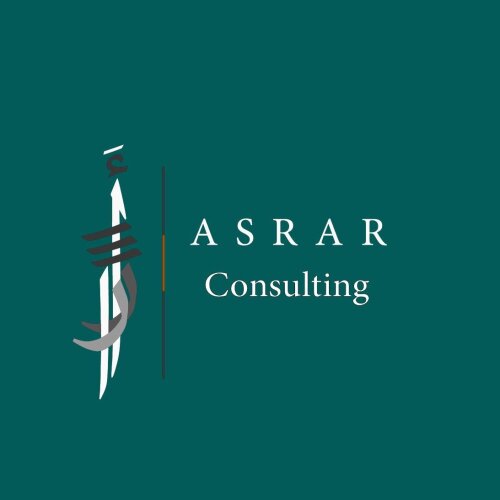Best Drunk Driving Lawyers in Palestine
Share your needs with us, get contacted by law firms.
Free. Takes 2 min.
Or refine your search by selecting a city:
List of the best lawyers in Palestine
About Drunk Driving Law in Palestine
In Palestine, drunk driving is a serious offense with significant legal implications. The laws governing drunk driving aim to enhance road safety and reduce accidents caused by impaired driving. The legal alcohol limit for drivers is strictly enforced, and exceeding this limit can result in severe penalties. The authorities are committed to implementing strict measures to deter individuals from drinking and driving, as this behavior poses a risk to public safety.
Why You May Need a Lawyer
If you've been accused of drunk driving in Palestine, navigating the legal system can be complex and overwhelming. A lawyer's expertise can be invaluable in various situations, such as challenging the charges against you, negotiating plea bargains, understanding the legal process, and protecting your rights throughout the judicial proceedings. Legal representation can also help minimize potential fines, penalties, or more serious consequences, including imprisonment or suspension of your driving license.
Local Laws Overview
The local laws in Palestine related to drunk driving are thorough. There's a legal blood alcohol concentration (BAC) limit, typically enforced using breathalyzer tests. If a driver is found to exceed this limit, they may face arrest and prosecution. Penalties can include fines, license suspension, mandatory education programs, and imprisonment. The law also mandates strict procedures for arresting officers, ensuring that tests are conducted fairly and accurately.
Frequently Asked Questions
What is the legal BAC limit in Palestine?
The specific legal blood alcohol concentration limit may vary, but it is generally low, aligning with international safety standards. It's advisable to check with local authorities for the most current information.
What are the penalties for a first-time offense?
Penalties for a first-time offense can include fines, a temporary suspension of your driving license, or participation in education programs. In serious cases, imprisonment may be considered.
Can I refuse a breathalyzer test?
Refusing a breathalyzer test can lead to additional penalties, including license suspension and legal ramifications, depending on the circumstances.
How can a lawyer assist me if I am arrested for drunk driving?
A lawyer can assist by representing you in court, negotiating plea deals, ensuring your rights are upheld, and working to minimize the impact of the charges on your life.
Is it possible to challenge the results of a breathalyzer test?
Yes, it is possible in some cases if there is evidence that the test was improperly administered or the device was faulty.
What happens if I cause an accident while driving under the influence?
Causing an accident while driving under the influence can lead to severe legal consequences, including heightened charges, increased penalties, and civil lawsuits.
Are repeat offenders subject to harsher penalties?
Yes, repeat offenders often face more severe penalties, which can include longer periods of incarceration and heavier fines.
What legal options do I have after being charged?
Options may include negotiating a plea bargain, contesting the charges in court, or pursuing alternative sentencing programs.
How can I reinstate my driver's license after suspension?
Reinstatement procedures typically involve completing any court-mandated programs, paying fines, and applying for reinstatement through the relevant licensing agency.
Are there any programs to help those with alcohol addiction problems?
Yes, several programs and resources are available to help individuals address alcohol addiction issues, which can be a factor in repeated offenses.
Additional Resources
For those seeking more information or support, the following resources may be helpful:
- Local governmental bodies handling traffic and road safety
- Non-profit organizations focusing on road safety and responsible drinking
- Legal aid bureaus offering services to those with limited means
Next Steps
If you need legal assistance in a drunk driving case, it's advisable to contact a lawyer who specializes in traffic or criminal law. Gather all relevant documents and evidence pertaining to your case, and prepare to discuss your situation honestly with a legal professional. It's important to act promptly as there are often time-sensitive elements in legal procedures related to drunk driving offenses.
Lawzana helps you find the best lawyers and law firms in Palestine through a curated and pre-screened list of qualified legal professionals. Our platform offers rankings and detailed profiles of attorneys and law firms, allowing you to compare based on practice areas, including Drunk Driving, experience, and client feedback.
Each profile includes a description of the firm's areas of practice, client reviews, team members and partners, year of establishment, spoken languages, office locations, contact information, social media presence, and any published articles or resources. Most firms on our platform speak English and are experienced in both local and international legal matters.
Get a quote from top-rated law firms in Palestine — quickly, securely, and without unnecessary hassle.
Disclaimer:
The information provided on this page is for general informational purposes only and does not constitute legal advice. While we strive to ensure the accuracy and relevance of the content, legal information may change over time, and interpretations of the law can vary. You should always consult with a qualified legal professional for advice specific to your situation.
We disclaim all liability for actions taken or not taken based on the content of this page. If you believe any information is incorrect or outdated, please contact us, and we will review and update it where appropriate.
Browse drunk driving law firms by city in Palestine
Refine your search by selecting a city.








